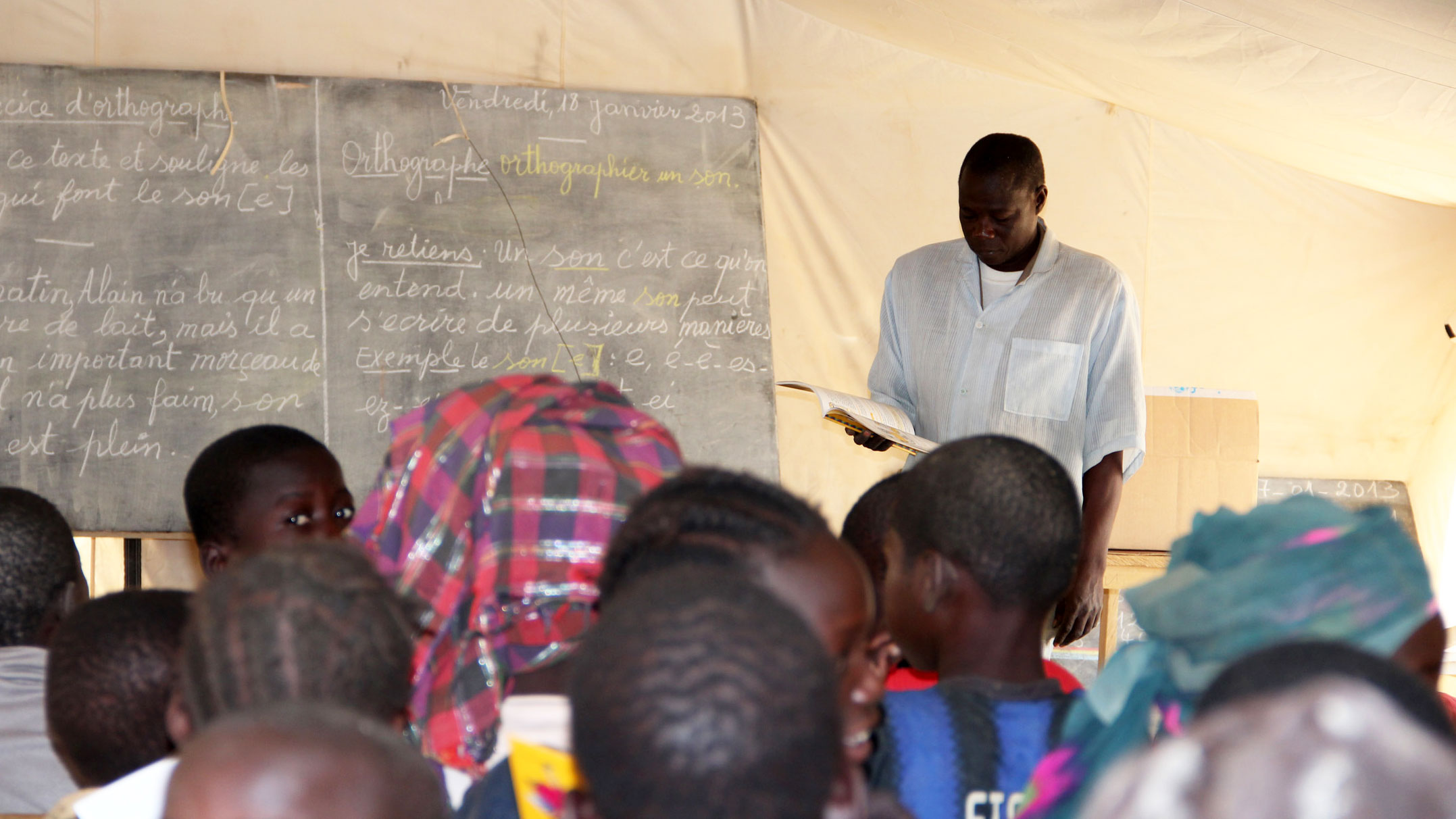“We need a goal that encompasses our broad aim of quality education, equitably delivered, for all children,” said Caroline Pearce, head of policy at the Global Campaign for Education (GCE).
The meeting was one of 11 global consultations on the post-2015 development agenda.
Millennium Development Goal 2 - to achieve universal primary education - succeeded in pushing up enrolment rates: in 2010 some 90 percent of children were enrolled in primary school, up from 82 percent in 1999, according to the UN.
But the goal was narrow and even more narrowly interpreted: it focused only on access to primary education, and implementers tended to judge success by enrolment rates rather than completion rates.
And the quality in many cases, was very poor. Some 250 million of the 650 million children completing primary school lacked basic numeracy and literacy skills, according to the 2012 Education for All Global Monitoring Report, (GMR), while half of all teachers in Africa have little or no training, according to UNESCO.
Too many untrained teachers
In Niger there are just 1,059 trained teachers at lower secondary level for 1.4 million children. “It’s shocking. Would you send your child to a school with no trained teachers? The lack of a sense of urgency around this is shocking,” said Pearce.
The focus will now shift to look at quality and learning outcomes - this is very welcome, said Susan Nicolai, research manager at the Overseas Development Institute, who has worked for over a decade in emergency and development education.
A task force on learning metrics, set up by the Brookings Institution, is addressing what kind of basic learning competencies should be measured. National assessment tests are likely to feature.
“We don’t want a narrow understanding of quality,” warned Pearce.
“Quality needs to go beyond literacy and numeracy to focus on broader issues like a safe learning environment, creative thinking… This may be a stretch for some countries, but we want them to be stretched.”
Education experts also stressed the need to extend basic education beyond primary to include at least three years of secondary school. Discussions are still under way as to whether basic education coverage should start at four to include one year of early childhood education.
A couple of governments have tried to extend universal education to the first three years of secondary - notably the Kenyan government, which pushed up enrolment rates by extending free primary schooling to include early secondary schooling in 2008. “The aim is to create that expectation on a global level,” said Nicolai.
Equity and access
Equity and access are likely to feature much more centrally. “The progress [in education attendance] has happened mainly among groups that are easiest to reach,” said Nicolai. “The most marginalized still struggle with access - whether that is girls, rural populations, children with disabilities, those living in conflict or disaster-affected situations, and a whole range of other groups.”
One third of children out of school are estimated to have a disability, while the poorest quintile is four times less likely to attend school than the richest quintile, according to a 2012 GMR policy paper.
But improving access is not just about reaching out to marginalized groups or setting up more schools in rural areas - it involves creating an environment where these children want to attend school. Research in South America and South Asia by GCE in 2012 showed girls’ experience of school was much more negative than boys’ and that most did not feel they were learning in a safe environment.
UN agencies UNICEF and UNESCO, which led the consultation process, will outline the outcomes to be presented at a High Level Panel on the post-2015 development agenda in Bali, Indonesia next week. The goals will then be refined over the next couple of months.
The shift in focus to new goals and themes does not mean the current focus on universal access to primary education will drop off, stressed consultation attendees. “There is still a sense of unfinished business, and this will not be forgotten,” said Nicolai.
Call for more government spending
But expanding the scope post-2015 will cost more. The share of government spending on education in developing countries has increased from 2.9 percent to 3.8 percent of GDP in low-income countries since 1999, according to UNESCO. GCE calls for this to reach 20 percent.
Following the introduction of the MDGs, official overseas development aid (ODA) to education increased dramatically, but the share of overall aid targeted to education has stagnated at 10 to 12 percent of the total, while the share of health has more than doubled, according to research by the Overseas Development Institute.
According to GCE estimates, donors in the Development Assistance Committee (an OECD forum) channelled less than 3 percent of their aid to basic education between 2005 and 2009 once tied aid and other factors were excluded. GCE calls for 10 percent of ODA to target basic education.
“This is not that extreme. Almost all groups consulted in the UN 2015 global survey, prioritized education. And education has a huge impact on all other areas - youth employment, climate change, HIV. It is key to building stable democratic societies, and yet it is still wildly underemphasized in donor priorities,” said Pearce.
aj/cb
This article was produced by IRIN News while it was part of the United Nations Office for the Coordination of Humanitarian Affairs. Please send queries on copyright or liability to the UN. For more information: https://shop.un.org/rights-permissions





